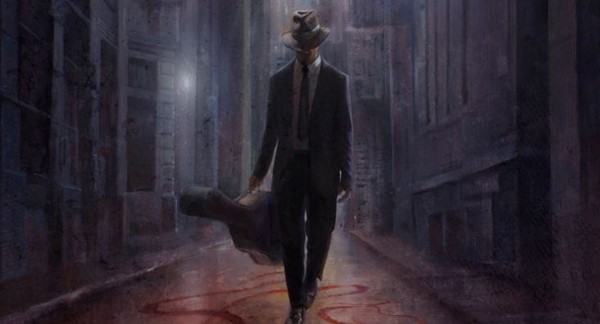Books & Culture
LaValle Dazzles with Lovcraftian Horror Novella, The Ballad of Black Tom

Dealing with the legacy of H.P. Lovecraft in uncanny fiction is rarely pleasant. Though he wasn’t the first person to write cosmic horror, he’s arguably its best-known practitioner. Both indirectly and through the Cthulhu mythos that he established, a milieu in which numerous other writers have worked in the decades since his death, he looms large in a certain strain of literary history. He was also a tremendous racist, to an extent that’s impossible to shake when reading much of his work. Lovecraft’s influence on generations of writers that followed (and his own skills at creating a still-terrifying cosmology) makes him difficult to ignore, but the odious sentiments expressed in many of his stories go far beyond the “cringeworthy” description sometimes applied to fiction where the handling of race has, to put it mildly, not aged well.
Handling Lovecraft in the present day can be tricky. After a number of writers expressed displeasure with the fact that the World Fantasy Awards used Lovecraft’s face as the model for the awards themselves, a move away from said image is taking place. Sofia Samatar, winner of the World Fantasy Award for her novel A Stranger in Olondria, addressed some of these questions in a post following her win in the fall of 2014. “This is not about reading an author but about using that person’s image to represent an international award honoring the work of the imagination,” she wrote as part of a larger piece that neatly makes its case.
All of this makes Victor LaValle’s novella The Ballad of Black Tom that much more intriguing. On one hand, it’s a straightforward story of a young man getting caught up in occult struggles in 1920s New York. But it’s also a commentary on Lovecraft and race–and, by the end, takes on an even larger scope in the context of American history and literature. There are cosmic horrors aplenty to be found here, to be sure, but that’s far from the complete scope of this work.
As the novella opens, Charles Thomas Tester is a young man living with his ailing father and traversing New York City in the 1920s, to all appearances a musician, but actually enmeshed in a host of activities, some of them touching on the city’s supernatural underworld. He crosses paths with a wealthy eccentric named Robert Suydam, who has a penchant for locations with impossible geography. Observing all of this is a police officer named Malone, who becomes convinced that something larger is at play here. If some of the characters’ names sound familiar, that’s intentional–LaValle is riffing here on Lovecraft’s “The Horror at Red Hook,” a modern re-read of which was headlined “Lovecraft’s Most Bigoted Story, No Really.”
In invoking a supernaturally-tinged Jazz Age New York and its secret clubs, mystic tomes, and mysterious societies, LaValle has opened the door to a beguilingly pulpy universe. At the same time, there are much more contemporary echoes to be found in here, particularly in the fate met by one of the book’s most sympathetic characters. Tester himself is goes through an evolution over the course of the book, and LaValle’s decision to shift the central viewpoint to another character halfway through ups the sense of mystery considerable.
In telling how Tester enters a world of supernatural horror after encountering the all-too-realistic horrors that can be wreaked by armed bigots who kill with impunity, LaValle presents a discomfiting juxtaposition. Institutional racism and white supremacy are monstrous systems that beget more monstrousness; late in this novel, LaValle quotes from another work of fiction that wrestled with the horrors of America’s history of racism and the terrifying acts that those horrors can prompt. It’s an impressive touch, and one which expands the scope of The Ballad of Black Tom even more.
The dedication of LaValle’s book speaks volumes: “To H.P. Lovecraft, with all my conflicted feelings.” Whether The Ballad of Black Tom is approached as a straightforward tale of horror in the early 20th century or as a metafictional commentary on Lovecraft’s own storytelling choices and racism, it succeeds. It also stands as proof that the process of engaging with the conflicted feelings that the work of Lovecraft can prompt can lead to rewarding, emotionally compelling writing of its own.









